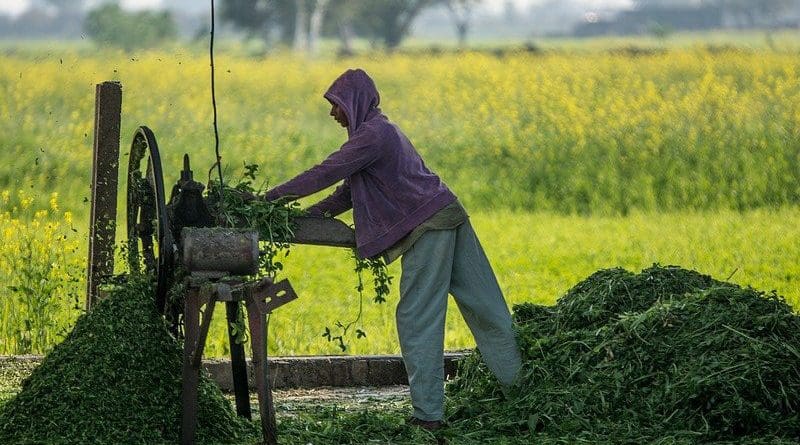Revitalization Of Pakistan’s Agriculture Economy – OpEd
Pakistan is an agrarian economy and agriculture sector is considered as the backbone of the country’s economy. It contributes about 20% to the GDP of the country, provides employment opportunities to more than 40% of the population and is the main source of foreign exchange earnings. Despite these facts, the potential of agriculture sector of Pakistan remains largely untapped. However, by utilizing the following strategies, Pakistan can unlock the true potential of its agriculture sector:
The traditional methods of farming, which are still prevalent in many parts of Pakistan, are labor-intensive and produce low yields. There is a dire need to modernize the agriculture sector by introducing new techniques and technologies to enhance productivity. The use of hybrid seeds, improved fertilizers, and modern irrigation systems can increase crop yields, reduce water wastage, and improve the overall efficiency of the agriculture sector.
Value-added agriculture refers to the processing of agricultural products to create value-added products, such as juices, jams, and pickles. The promotion of value-added agriculture can create new employment opportunities, increase farmers’ incomes, and reduce post-harvest losses. The government can provide incentives to the private sector to invest in this sector and establish processing plants.
Pakistan has a favorable climate for growing a variety of crops. However, the agriculture sector is dominated by a few crops, such as wheat, rice, and cotton. There is a need to diversify the crops by introducing new crops, such as fruits and vegetables, which have a high demand in the international market. The government can provide support to the farmers by providing them with seeds, training, and market linkages.
The demand for organic food is increasing in the international market, and Pakistan can benefit from this trend by promoting organic farming. Organic farming can increase soil fertility, reduce the use of pesticides and fertilizers, and improve the quality of agricultural products. The government can provide incentives to the farmers to adopt organic farming practices.
The lack of proper infrastructure, such as roads, storage facilities, and cold storages, is one of the major challenges facing the agriculture sector of Pakistan. The government needs to invest in infrastructure development to improve the efficiency of the agriculture sector. The construction of new roads and the establishment of storage and cold storage facilities can reduce post-harvest losses, increase the shelf life of agricultural products, and improve market access for farmers.
Due to the current economic crisis and the imminent risk of default, relying on local production has become necessary. However, the existing agricultural system at the national level suffers from corruption and mismanagement, which highlights the urgent need for improvements in the sector. The Armed Forces could provide a viable solution in this regard, given their experience in crisis management and transparent administrative practices. Furthermore, leveraging their technological capabilities and resources, the Armed Forces could assist provincial governments in converting unproductive lands, particularly in Tharparkar, Thal, and Cholistan, into arable areas. It is crucial to reform Pakistan’s agriculture industry promptly to ensure its productivity for future generations.
Many farmers in Pakistan do not have access to formal financial services, such as loans and insurance. The government can promote financial inclusion by providing farmers with access to formal financial services. This can help farmers to invest in modern farming techniques, improve their productivity, and manage risks associated with agriculture.
The agriculture sector of Pakistan is facing many challenges, such as water scarcity, soil degradation, and pests and diseases. There is a need to invest in research and development to find solutions to these challenges. The government can establish research centers and provide funding for research and development activities.
The agriculture sector of Pakistan has the potential to become a major contributor to the country’s economy. By utilizing the strategies discussed above, Pakistan can unlock the true potential of its agriculture sector and improve the lives of millions of farmers.
Humais Sheikh, has completed his Master’s from Quaid-I-Azam University Islamabad in Defense and Strategic studies. He is an independent defense analyst and Ex. Vice president of Defense and Strategic Studies student’s society.

